 School zone or zoo? Anyone who’s traversed a school zone South Florida at busy pickup or drop-off times might have a tough time discerning. For all school officials and traffic safety engineers prioritize keeping kids safe, the Florida school zone crash risk is still high : Speeding drivers, school bus drivers with big blind spots, distracted walkers and cyclists (especially those with noise-canceling headphones), jaywalkers, and unsafe pickup/drop off behaviors in among 1/3 drivers (double-parking, stopping in the middle of the crosswalk, etc.).
School zone or zoo? Anyone who’s traversed a school zone South Florida at busy pickup or drop-off times might have a tough time discerning. For all school officials and traffic safety engineers prioritize keeping kids safe, the Florida school zone crash risk is still high : Speeding drivers, school bus drivers with big blind spots, distracted walkers and cyclists (especially those with noise-canceling headphones), jaywalkers, and unsafe pickup/drop off behaviors in among 1/3 drivers (double-parking, stopping in the middle of the crosswalk, etc.).
There are an estimated 3.2 million schoolchildren in the U.S. (public and private). According to the Florida Department of Education, about 500,000 students ride a bus. In Lee, Collier, and Charlotte Counties, about 25%-35% of kids take the bus. The rest walk, ride a bike, or are car riders. In Lee County alone, 1,300 students are classified as facing “hazardous walking conditions” on their way to school (about 12,300 statewide).
According to the Transportation Research Board, an estimated 25,000 kids are injured and 100 are killed each year while walking to or from school. Not all of those happen in school zones, though most do involve speeding vehicles. About 30 percent of school zones do not have crosswalks.
As longtime Fort Myers personal injury lawyers, we know that unfortunately, Florida has the third-highest number of annual child traffic deaths, and consistently ranks at the top of the list for child pedestrian and bicycle deaths. According to the National Highway Traffic Safety Administration (NHTSA), the most dangerous time for child pedestrians is between 3 p.m. and 6 p.m. – after school hours.
Traffic Rules in Florida School Zones
The posted speed limit in most Florida school zones is 20 mph, though some cities and counties have lowered it even further to 15 mph. Going even 1 mph over that limit can result in a $50 fine – without any prior warnings. Anything above that, and you’re facing a fine of between $200 and $500 (depending on how fast you’re going), plus 3 points on your license (both of which can be waived if the prosecutor allows you to take a traffic safety course). Flashing yellow lights are drivers’ main indicator upon entering and exiting. Enforcement times are typically posted on road signage, though it’s usually 30 minutes prior to the start of school, during school hours, and 30 minutes after school hours have concluded. And in case you didn’t know: It’s illegal to obstruct a crosswalk in a school zone, even if you’re picking up or dropping off a child. If there’s a crossing guard, drivers must obey all their instructions.
In an effort to bolster student safety near schools, a new Florida law went into effect July 1, 2023 to heighten enforcement of school zone speed limits. The law authorizes city or county governments to enforce speed limits in school zones with speed detection systems (similar to red light cameras). Although the idea of speed cameras isn’t especially popular with motorists, the U.S. Centers for Disease Control & Prevention reports their presence can reduce the total crash risk from 8 to 49 percent.
Some say it doesn’t go far enough, though, because violators won’t incur points on their license, and their infractions won’t result in higher auto insurance rates.
Existing law outlined in F.S. 316.306 prohibits the use of handheld wireless communication devices (cell phones, mainly) while driving through a designated school crossing or in a school zone. To do so is considered a primary offense (for which police can initiate a traffic stop).
Reduce Florida School Zone Crash Risk
Continue reading
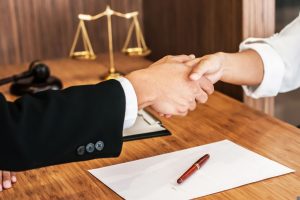 If you’ve been injured in an accident and are considering pursuing a personal injury claim, you might be wondering what happens during a free consultation with a Fort Myers personal injury lawyer.
If you’ve been injured in an accident and are considering pursuing a personal injury claim, you might be wondering what happens during a free consultation with a Fort Myers personal injury lawyer.




 Florida Personal Injury Lawyer Blog
Florida Personal Injury Lawyer Blog



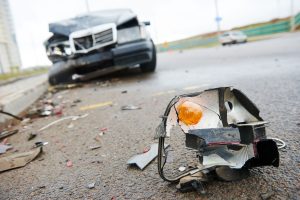 Hit-and-run accidents are both incredibly problematic and far too pervasive in Florida. On average, the state clocks 103,000 hit-and-run crashes annually, an incident rate that has climbed 40 percent in the last decade, according to the
Hit-and-run accidents are both incredibly problematic and far too pervasive in Florida. On average, the state clocks 103,000 hit-and-run crashes annually, an incident rate that has climbed 40 percent in the last decade, according to the 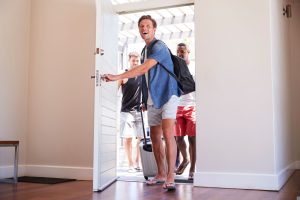 What happens if you’re injured at your Fort Myers Airbnb rental?
What happens if you’re injured at your Fort Myers Airbnb rental? Golf cart owners in Florida, listen up! You could be held legally responsible if someone is hurt in a golf cart accident involving your golf cart, even if you weren’t the one operating it. As a
Golf cart owners in Florida, listen up! You could be held legally responsible if someone is hurt in a golf cart accident involving your golf cart, even if you weren’t the one operating it. As a  School is back in session in South Florida! We all are hoping for a happy, healthy, productive school year. Of course, it seems inevitable that there will be at least some injuries in schools.
School is back in session in South Florida! We all are hoping for a happy, healthy, productive school year. Of course, it seems inevitable that there will be at least some injuries in schools.
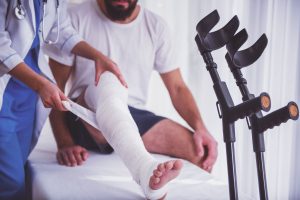 In Fort Myers personal injury cases, proving proximate is key.
In Fort Myers personal injury cases, proving proximate is key.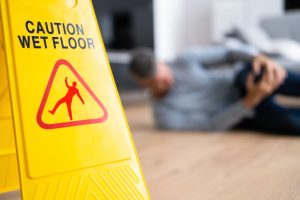 Witnesses can play a pivotal role in any Florida personal injury case – and that includes Fort Myers slip-and-fall lawsuits (also known as Premises Liability lawsuits). Sometimes with the ubiquitous presence of security and cell phone cameras, it’s easy to forget that the firsthand accounts of other people can be invaluable in helping us reconstruct what happened and who was at-fault.
Witnesses can play a pivotal role in any Florida personal injury case – and that includes Fort Myers slip-and-fall lawsuits (also known as Premises Liability lawsuits). Sometimes with the ubiquitous presence of security and cell phone cameras, it’s easy to forget that the firsthand accounts of other people can be invaluable in helping us reconstruct what happened and who was at-fault.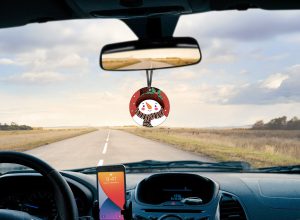 Sparkling decor is part of the magic of the holiday season. But as a Fort Myers injury lawyer, I’d strongly advise you to keep it away from your steering wheel.
Sparkling decor is part of the magic of the holiday season. But as a Fort Myers injury lawyer, I’d strongly advise you to keep it away from your steering wheel. School zone or zoo? Anyone who’s traversed a school zone South Florida at busy pickup or drop-off times might have a tough time discerning. For all school officials and traffic safety engineers prioritize keeping kids safe, the Florida school zone crash risk is still high : Speeding drivers, school bus drivers with big blind spots, distracted walkers and cyclists (especially those with noise-canceling headphones), jaywalkers, and
School zone or zoo? Anyone who’s traversed a school zone South Florida at busy pickup or drop-off times might have a tough time discerning. For all school officials and traffic safety engineers prioritize keeping kids safe, the Florida school zone crash risk is still high : Speeding drivers, school bus drivers with big blind spots, distracted walkers and cyclists (especially those with noise-canceling headphones), jaywalkers, and 
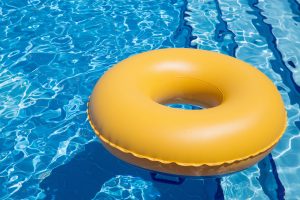 Here in South Florida, swimming pools are a way of life. Unfortunately, they can also be the cause of death and serious injury. Florida swimming pool accidents result in hundreds of
Here in South Florida, swimming pools are a way of life. Unfortunately, they can also be the cause of death and serious injury. Florida swimming pool accidents result in hundreds of 






